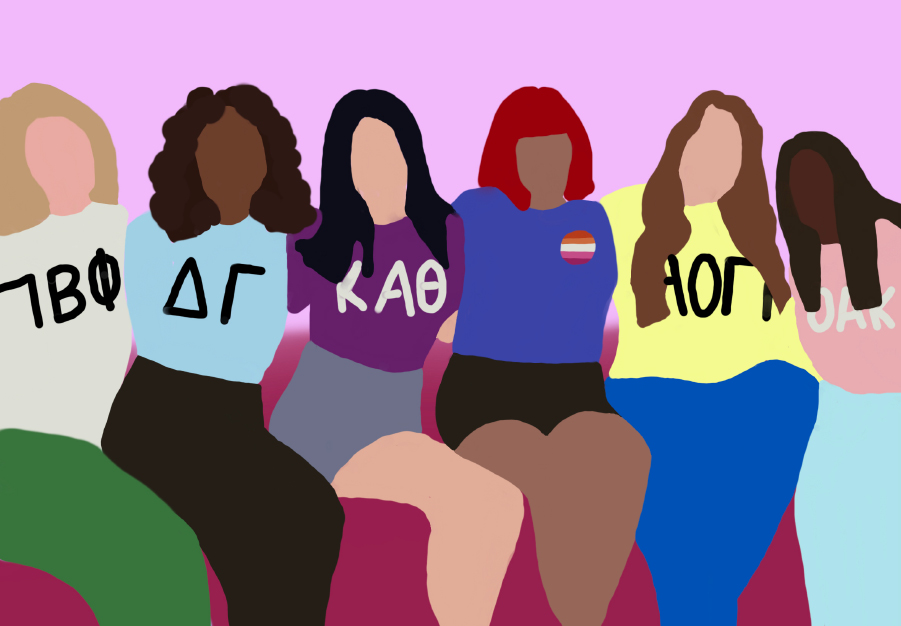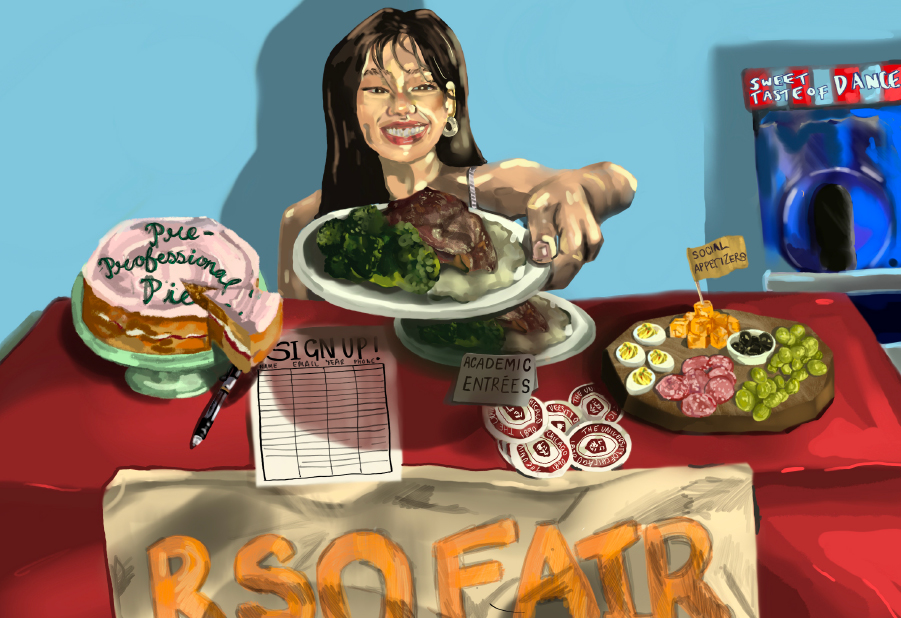They’re usually stationed where there’s a lot of foot traffic, maybe right by Hull Gate or even Hutch Courtyard, often wearing matching brightly colored shirts, maybe holding a clipboard or a brochure. I can feel their eyes on me, and I try my best to look away because I know that if I accidentally make eye contact with them I’ll—stupid social reflexes—smile. I try to retract it by looking away, but too late, I’m caught in the canvasser’s web.
Fast forward a couple months and I’m standing at the back door of Reynolds Club, desperately trying to catch the eye of busy passersby and awkwardly trying to initiate conversation. How did I find myself on the other side? I feel pathetic every time someone gives me an almost pitying glance and, even when they do stop to talk, I feel uncomfortable as soon as I mention I’m from a Christian fellowship. I wonder if they feel as uncomfortable talking to me as they would passing people on subway platforms proclaiming that the rapture is coming next week or watching televangelists spitting that the world is damned.
After acknowledging how uncomfortable it can be to be on the other side of these kinds of conversations, though, I admire the enormous personal stakes people put into something they believe in, and respect when someone is so invested in a cause that they are devoted to being an advocate even in the smallest personal interactions. So I still decide to table for my Christian group because I think faith is important and can be a beneficial aspect of student life. But as I catch myself in the middle of reciting a spiel on my beliefs about God, it dawns on me—why the hell would they care about what I, a stranger, have to say about these matters, much less be convinced by me to change something about themselves? Of course this cause, this belief, is important to me. And of course I believe that it has far-reaching consequences that would benefit this person that I’m talking to—but only theoretically. I don’t know what this person has experienced, or what kind of questions they’ve asked, or what their religious or nonreligious background may be.
Regardless of topic, there’s a connection to be drawn between actually caring for people and the possibility of changing their worldview. But often this connection breaks down, and a person’s elementary understanding of a topic can be used as a springboard, not for a personal conversation, but for the speaker to articulate their position instead. In these cases, the issue seems to become more important than the person they’re talking to.
Imagine talking to someone who makes an offhandedly bigoted comment. If I were to chastise them for their ignorance, I may be justified—both in my anger and in hopefully addressing nuanced and insidious systems present in language and elsewhere which contribute to wider problems of oppression. But I’d imagine what would most likely happen would be that they would be a little more careful with their language around me next time.
But if I were to try to take time to understand how the culture they grew up in rendered them unaware to certain perspectives, then maybe I’d be able to have a more extensive conversation about misconceptions that they themselves may even be unaware about. In this scenario, the chances of this person adopting a new perspective or gaining a greater self-awareness are higher.
I have many sets of beliefs spanning both religion and social justice, and I think that these beliefs are important to discuss. But I’m also convinced that my words mean little to nothing unless my listener is interested, and that it is near impossible to make someone care about something unless they’re convinced you are trying to understand their perspective first.
Even if widespread social progress and tangible societal change are your goals, I would argue that a greater effort to first listen and understand is the most productive method of instigating catalyzing change. Change happens with people who care, and people are more open to care if they feel they are cared for first. Maybe you may see things differently.
Why don’t we talk about it?
Grace Koh is a third-year in the College majoring in political science.








